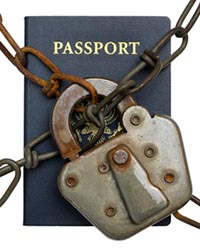Everything You Need to Know About Passport Denial and Revocation: Reasons Your Passport Might be Rejected and How to Avoid It
Updated As of read 2 min

Do you need to travel overseas but don’t know if your passport will get approved? This is the ultimate guide for everything you need to know about passport denial and revocation. We explain all of the possible reasons that your passport application may be denied, as well as steps you can take ahead of time to make sure it gets accepted.
Whether you’re a seasoned traveler or just beginning to explore the world, this blog post provides important information on how passports work and what could go wrong.
Revocation or Limited of Passports (Federal Law)
It can be very difficult to have your U.S. passport denied or worse to have your passport revoked. There are, however, processes available to recover and restore a passport over time, should something limit your ability to possess one. Of course, not all situation is the same.
In some cases, individuals can not travel internationally for one reason or another. Traveling outside of the U.S. is a privilege that no one wants to lose, so treat the responsibility with respect.
The United States Department of State determines who is eligible to carry a passport through the application process. Citizens of all kinds must comply with their mechanisms to obtain legal and valid documentation. Monitoring how it is being used and by which citizens are the aim. This is also the department within the government that can deny or revoke your passport.
Revoking Your Passport by a Law Enforcement Agency
So, if a law enforcement agency wants to revoke your passport they could for a variety of reasons, such as:
- There’s a warrant out for an arrest on a felony.
- Lapsed child-support responsibilities
- Charges pertaining to drug trafficking
- Sexual tourism-related convictions
If you have had legal issues pertaining to any of the situations mentioned above, you may experience complications with your passport application. A third-party service may be able to expedite the process or at least manage the procedure through the proper channels for you.
These requirements are in place to protect the safety and reputation of all travelers leaving the country. Remember that while abroad, you are a representative of the U.S. How you behave is not only a reflection of your own expectation but can affect how others are perceived when traveling in foreign countries as well.
Conclusion
It is essential for travelers to understand the reasons for passport denial or revocation and the situations in which it might occur. Passport denial and revocation can be financially and emotionally devastating, so it is important to take every precaution possible to avoid it.
Paying attention to the minute details of a passport application, navigating certain challenges like payment issues and meeting deadlines should all be taken into account when applying for a passport.



